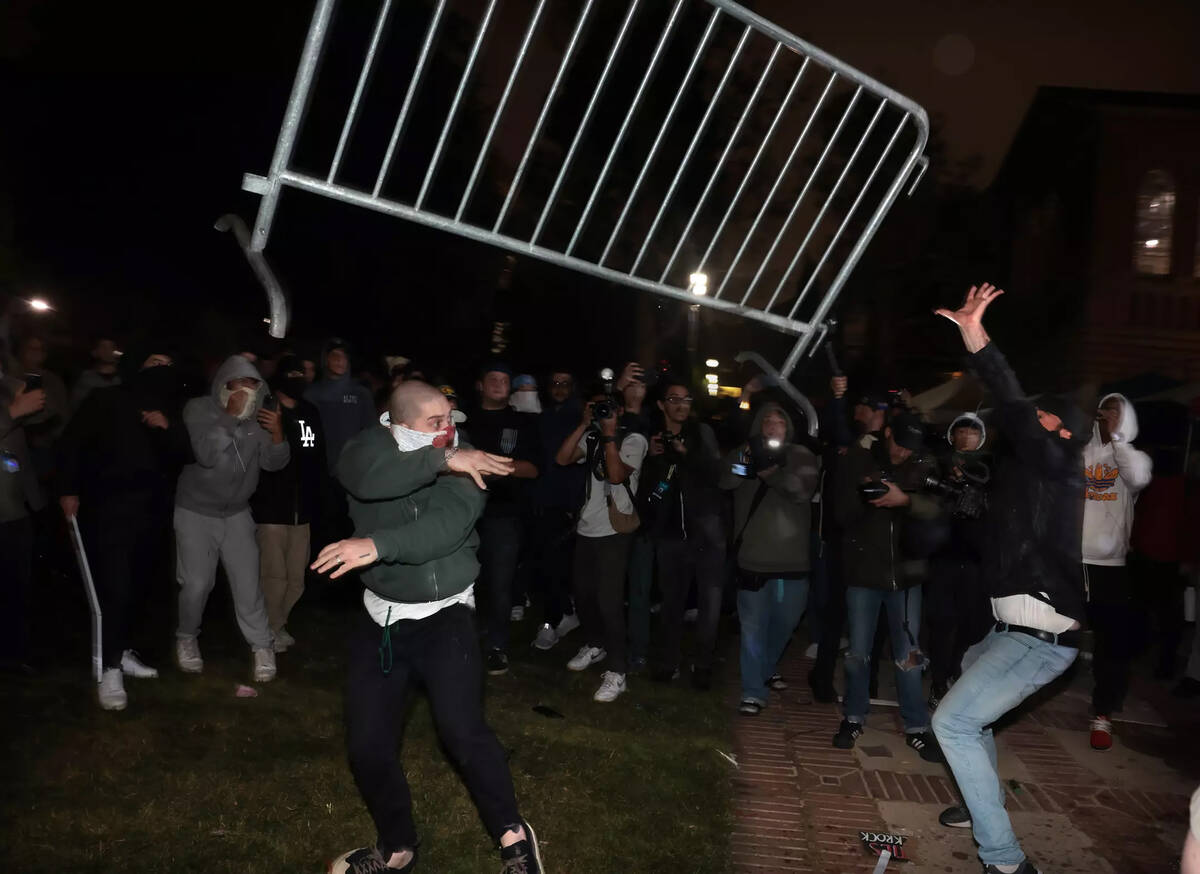Slow UCLA response to violence questioned
LOS ANGELES — On the morning before a mob attacked a pro-Palestinian student encampment at UCLA, campus Police Chief John Thomas assured university leadership that he could mobilize law enforcement “in minutes” — a miscalculation from the three hours it took to actually bring in enough officers to quell the violence, according to three sources.
Days earlier, campus leadership had directed Thomas to create a safety plan that would protect the University of California, Los Angeles community after the encampment was put up last week and began drawing agitators, the sources said. The chief was told to spare no expense to bring in other University of California police officers, offer overtime and hire as many private security officers needed to keep the peace.
But Thomas did not provide a plan to senior UCLA leadership — even after he was again asked to provide one after skirmishes broke out between Israel supporters and pro-Palestinian advocates at dueling rallies Sunday.
The account of Thomas’ actions leading up to the attack was provided by three sources who were not authorized to speak publicly.
Thomas did not immediately respond to a request for comment. UCLA also declined to comment.
Calls to step aside grow
But internal calls are growing for the police chief to step aside as University of California President Michael V. Drake initiates an independent review of UCLA’s response, the sources said. The police chief reports to Vice Chancellor Michael Beck, who oversees the UCLA Police Department and the Office of Emergency Management. Beck did not immediately respond to a request for comment.
A spokesperson for Gov. Gavin Newsom has also called for answers to explain “the limited and delayed campus law enforcement response at UCLA.”
UCLA Chancellor Gene Block described the attack in a statement as “a dark chapter in our campus’s history” and said the university was “carefully examining our own security processes in light of recent events.”
Key questions involve when officials decided to bring in help from other agencies and whether help could have arrived sooner. Outside police forces generally do not enter the campus without the university’s approval, since it functions as an independent municipal entity although it is on state land.
Additional resources
The Los Angeles Times reported Thursday that the UCLA Police Department had asked other campuses for additional police officers five days before the attack. The reporting was based on documents the paper reviewed and information from the head of the UC police officers union. Only a few on-duty UCLA police officers were on hand to protect the encampment Tuesday night.
The attack began Tuesday about 10:30 p.m., when a large group of agitators — some wearing black outfits and white masks — arrived on campus and assaulted campers, ripped down barricades, hurled objects at the encampment and those inside and threw firecrackers into the area.
Campers, some holding lumber and wearing goggles and helmets, rallied to defend the site’s perimeter. Some used pepper spray to defend themselves. Several were injured, including four Daily Bruin student journalists.
Only a few on-duty UCLA police officers were on hand to protect the encampment, one source told The Times. Thomas told the Daily Bruin his officers came under attack while helping an injured woman and had to leave.
Law enforcement sources said it took time for the Los Angeles Police Department, California Highway Patrol and other agencies to mobilize the large number of officers needed. A larger force began moving into the area after 1:30 a.m. Wednesday and fully contained the situation after 3 a.m.
UCLA declared the encampment unlawful Tuesday and asked participants to leave or face possible discipline. The next day, the campus called in police, who dismantled tents and arrested more than 200 protesters in clashes early Thursday that lasted for hours. Several protesters were injured.
The UC Board of Regents held a closed-door meeting Friday to discuss the campus protests.






















